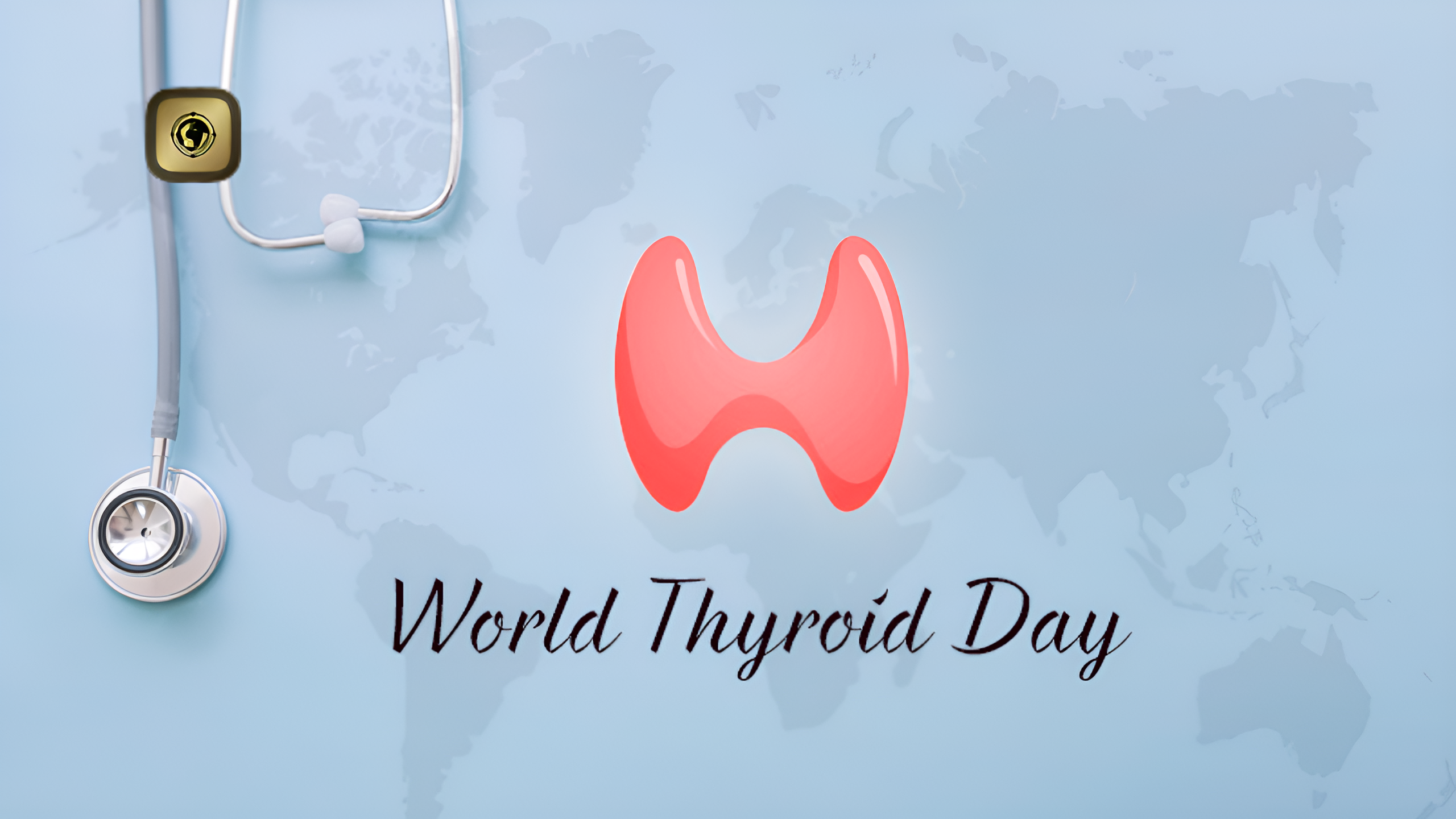April 3, 2025
World Thyroid Day, observed annually on May 25th since 2008, aims to raise awareness about the thyroid gland, its disorders, prevention, and treatment. Many individuals suffer from thyroid disorders without realizing it until the condition worsens. On this World Thyroid Day, let us explore the significance of this butterfly-shaped gland in our bodies.
What is Thyroid Disease?
Thyroid disease refers to a range of disorders affecting the thyroid gland, a butterfly-shaped organ located in the neck. This gland plays a vital role in producing hormones that regulate metabolism, energy levels, and overall bodily functions. When the thyroid becomes either underactive (hypothyroidism) or overactive (hyperthyroidism), it can lead to serious health complications.
Types of Thyroid Disorders
Understanding the various thyroid disorders is essential for effective management and treatment. Regular check-ups and appropriate modifications to treatment can help mitigate their impact. Here are some common thyroid disorders:
- Hypothyroidism – This condition occurs when the thyroid gland is underactive and does not produce enough thyroid hormones. Symptoms include fatigue, weight gain, cold intolerance, and depression.
- Hyperthyroidism – This condition results from an overactive thyroid gland that produces excessive thyroid hormones. Symptoms include weight loss, increased appetite, anxiety, and a rapid heartbeat.
- Goitre – An enlargement of the thyroid gland, which can occur in both hypo- and hyperthyroid conditions. While generally painless, a goitre may cause coughing, swallowing difficulties, or breathing issues.
- Thyroid Nodules – These are lumps that form within the thyroid gland. Although most nodules are benign, some may produce excess hormones or grow large enough to cause discomfort.
- Thyroid Cancer – A less common but serious condition involving malignant tumors in the thyroid gland. It often presents with few symptoms initially but may be detected during routine check-ups.
- Hashimoto’s Thyroiditis – An autoimmune disease and a leading cause of hypothyroidism in the U.S. The immune system mistakenly attacks the thyroid gland, causing inflammation and reduced hormone production.
- Graves’ Disease – The most common cause of hyperthyroidism, this autoimmune disorder prompts the thyroid to overproduce hormones.
Causes of Thyroid Disease
Several factors can contribute to thyroid disease, including:
- Autoimmune Diseases – Graves’ disease and Hashimoto’s thyroiditis occur when the immune system mistakenly attacks the thyroid gland.
- Iodine Deficiency – Although rare in developed countries due to iodized salt usage, iodine deficiency remains a global cause of thyroid dysfunction.
- Genetic Factors – A family history of thyroid disease increases the risk of developing thyroid disorders.
- Environmental Exposures – Radiation exposure from medical procedures or environmental pollutants, including pesticides and certain chemicals, can impact thyroid health.
Common Symptoms of Thyroid Disorders
Symptoms vary depending on whether the thyroid is overactive or underactive. Common signs include:
- Fatigue and weakness
- Unexplained weight gain or loss
- Mood swings, anxiety, or depression
- Heart rate fluctuations (either too fast or too slow)
- Neck swelling (goitre)
Side Effects of Thyroid Conditions
Thyroid disorders can significantly impact various organs and systems in the body, leading to:
- Cardiovascular Issues – Hypothyroidism can cause a slow heart rate and increased risk of heart disease, while hyperthyroidism may lead to rapid heart rate and palpitations.
- Metabolic Changes – Hypothyroidism slows metabolism, leading to weight gain, while hyperthyroidism speeds up metabolism, resulting in sudden weight loss.
- Reproductive Health Issues – Women with thyroid disorders may experience irregular menstrual cycles, affecting fertility.
- Mood and Cognitive Effects – Symptoms include mood swings, difficulty concentrating, and memory issues.
Diagnosis and Tests for Thyroid Disorders
Healthcare professionals use several diagnostic methods to confirm thyroid disorders and determine the appropriate treatment:
- Blood Tests – Measure Thyroid Stimulating Hormone (TSH) levels along with thyroid hormones T3 and T4.
- Ultrasound – Helps detect nodules and assess changes in the thyroid gland’s size.
- Thyroid Scan – Involves ingesting or injecting a small amount of radioactive iodine to visualize thyroid activity and identify abnormal hormone production.
- Biopsy – If nodules or irregularities are found, a fine-needle aspiration biopsy may be conducted to determine whether the growth is benign or malignant.
Raising awareness about thyroid health is crucial for early detection and effective management of thyroid disorders. On this World Thyroid Day, let us take the initiative to educate ourselves and promote thyroid health for overall well-being.



Leave A Comment